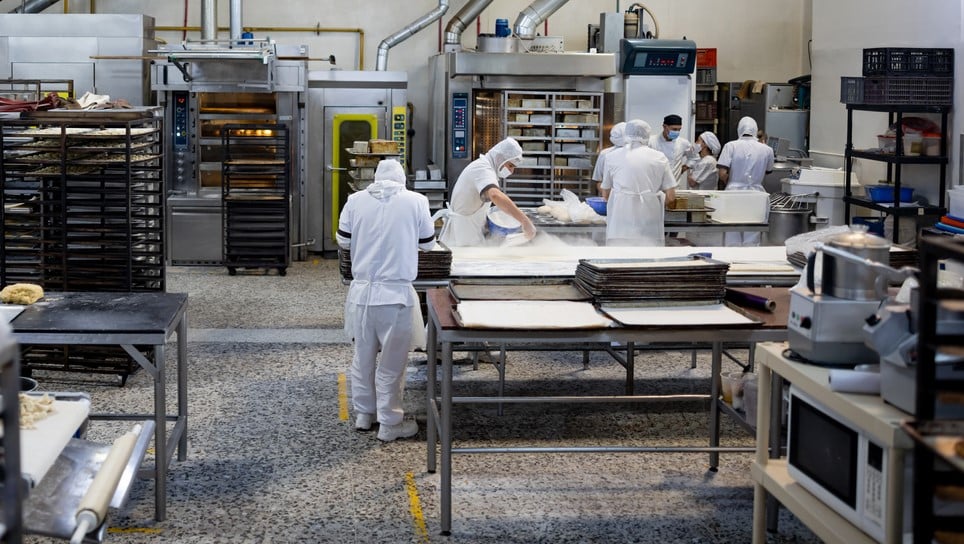5 Common Food Safety Mistakes Frontline Workers Make on the Production Line
In some ways, frontline production workers are the backbone of the food and beverage industry, transforming the raw agricultural commodities into the products consumers love. Their hands can touch every item that makes the journey from farm to table, and their commitment to high standards ultimately shapes the quality and availability of products consumed by people around the world.
As a result, frontline workers have more impact on food safety than almost any other players in the value chain. How well they adhere to food safety protocols throughout each shift can mean the difference between public safety and a foodborne illness outbreak. From standards of behavior to specific procedures, there are many details for frontline workers to keep in mind. Here are the five most common mistakes they tend to make — and why it’s important to avoid them.
1. Poor Personal Hygiene
It’s common knowledge that frontline workers are required to wash their hands after using the restroom or touching unclean surfaces like brooms, pallets, and even their own faces. However, it’s critical to continue the same diligent hand-washing practices even when employees are wearing gloves.
Failure to wash hands adequately and regularly or keep gloves clean and intact can result in pathogen transfer from dirty hands and gloves to the food products workers are handling, as well as cross-contamination between different types of foods. Eating and drinking in non-designated areas can also put work surfaces and food products at risk of contamination. Any one of these oversights can result in a foodborne illness outbreak among consumers and compromise the overall safety and quality of the food supply.
2. Re-using Utensils on Different Types of Food
Food categories like dairy and fish each have unique pathogenic and allergenic risks, so it’s critical to keep utensils for each separated to avoid cross-contact and cross-contamination. Re-using utensils between different food items can lead to the transfer of allergens, pathogens, and other contaminants from one product to another.
In addition, allergens like peanuts can transfer to products that aren’t labeled with that ingredient, putting consumers at risk of potentially fatal exposures. Proper segregation of utensils for different food types helps ensure nothing harmful is introduced into different products, upholding the integrity of the food being processed and minimizing the risk of cross-contact and contamination.
3. Failure to Clean and Sanitize Correctly
Properly cleaning and sanitizing equipment and work surfaces requires diligent adherence to cleaning schedules, thoroughly following processes, and paying attention to details. Using the wrong amount of cleaning agent on equipment or washing it off too quickly can allow microorganisms to survive and proliferate, leading to food contamination down the line. Failure to follow recommended cleaning schedules can lead to the same outcome, resulting in entire batches of product being contaminated — and putting public health at risk.
As automation becomes a bigger part of food and beverage manufacturing, it eliminates some potential for human error in cleaning processes. However, more machinery reinforces the need for employees to thoroughly clean and sanitize equipment on a regular basis. Neglecting hard-to-reach areas and other work areas can also allow biofilms to build up and create a breeding ground for microorganisms.
4. Improper Storage and Temperature Controls
Responsibility must be assigned to monitor storage temperatures regularly to ensure perishable ingredients and products are kept under 40°F. Failure to notice temperature deviations can allow harmful pathogens like Salmonella and E. coli to grow, causing a foodborne illness outbreak among consumers after products reach market. Rigorous temperature monitoring, prompt action when deviations occur, and proper training are essential to prevent these risks and ensure the safety and quality of food products.
5. Failure to Report Problems
It’s not enough for frontline workers to monitor their own behavior — they must watch for adherence by their coworkers as well. It’s important to immediately report nonconformances, mechanical issues, and other problems that threaten food safety so production teams can take the appropriate corrective actions to prevent an outbreak. Employees also need to report their own illnesses to supervisors to prevent contaminating product contact surfaces and the products they’re handling.
Clean Up Food Safety Culture With AIB International
Maintaining high food safety standards requires both training and constant reinforcement across the entire organization. Leveraging an outside partner to provide education and change behavior is critical to achieving desired results. For over 100 years, AIB International has been a leader in creating and executing robust food safety training programs for every type of food and beverage company. Learn more about our course offerings here.


